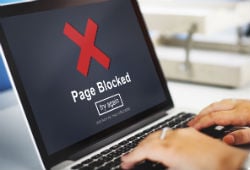Putin Signs Law to Remove Pirate Proxies From Search Engines

Not only is the country becoming a leader when it comes to blocking, but it’s also positioning itself to handle future threats.
Part of that is dealing with the endless game of whac-a-mole that emerges when a site or service is blocked following the orders of the Moscow Court. Very quickly new domains appear, that either provide proxy access, mirror the contents of the original, or present that same content in a new format.
These techniques have allowed pirates to quickly recover from most legal action. However, a new law just signed by the Russian president aims to throw a significant wrench in the works.
After being adopted by the State Duma on June 23 and approved by the Federation Council June 28, on Saturday July 1 Vladimir Putin signed a new law enabling the country to quickly crack down on sites designed to present content in new ways, in order to circumvent blockades.
The legislation deals with all kinds of derivative sites, including those that are “confusingly similar to a site on the Intenet, to which access is restricted by a decision of the Moscow City Court in connection with the repeated and improper placement of information containing objects of copyright or related rights, or the information needed to obtain them using the Internet.”
As usual, copyright holders will play an important role in identifying such sites, but the final categorization as a derivative, mirror, or reverse proxy will be the responsibility of the Ministry of Communications. That government department will be given 24 hours to make the determination following a complaint.
From there, the Ministry will send a notification in both Russian and English to the operator of the suspected pirate site. Telecoms watchdog Roskomnadzor will also receive a copy before ordering ISPs to block the sites within 24 hours.
In an effort to make the system even more robust, both original pirate sites and any subsequent derivatives are also being made harder to find.
In addition to ISP blockades, the law requires search engines to remove all blocked sites from search results, so Googling for ‘pirate bay mirror’ probably won’t be as successful in future. All advertising that informs Internet users of where a blocked site can be found must also be removed.
The new law comes into force on October 1, 2017.
Source: TF, for the latest info on copyright, file-sharing, torrent sites and ANONYMOUS VPN services.




The crackdown continues.